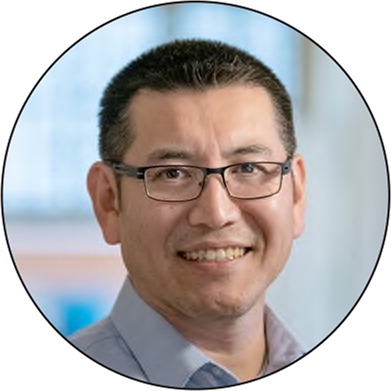
Am Fam Physician. 2021;103(4):240
Author disclosure: No relevant financial affiliations.

7:45 a.m.
I drive into the parking garage at my clinic and complete the online self-attestation that I am free of COVID-19 symptoms and exposure risk. We are testing 120 employees today for COVID-19 exposure; I spent more than two hours last night ordering COVID-19 nucleic acid amplification tests. This mass testing effort was the culmination of several discussions with the health department on how to address multiple cases of COVID-19 among employees. Our health department considers four or more positive cases within one week to be an “outbreak,” and anyone who worked at the site during that time needs to be tested, even if they had no direct contact with a person with COVID-19.
9:10 a.m.
We test 60 people, and the line of employees shortens. I take this opportunity to catch up on returning calls from patients. The first message is from a patient with diabetes and an A1C level of 11. She has questions about possible adverse effects from her medications. I call her cell phone, but due to background noise, I have trouble hearing her. I hear a deep voice say, “Pop the trunk!” She explains that her car had broken down on the highway and is being towed. I ask her to call me back at a better time, but she insists on completing the telemedicine visit while riding in the tow truck.
2:00 p.m.
I notice a patient and their child enter an empty examination room and close the door. I know that particular room is not being used today, so I ask the clinic manager who they are. The manager said, “They're here to do a telehealth visit with Dr. M., who is working from home today.” She continued, “They said they couldn't afford to pay for their phone anymore. We're getting more patients like this.” I let the idea sink in that our patients are coming to the clinic to call our staff who are working from home.
3:15 p.m.
My next patient greets me with a huge smile when I walk into the examination room. He has diabetes and hypertension, and I asked him to come to the clinic today because he said his legs were beginning to swell and that he felt more fatigued. I tell him his blood pressure is 192/106. He looks up and says, “Doc, my blood pressure is up because I get so mad when I hear people call the pandemic a hoax or when I think about George Floyd or Breonna Taylor. I'm a Black man with a Black son who has a mental health issue. I can't take this anymore.” We commiserate as I examine him and come up with a treatment plan. As he heads towards the lab, he says, “There's something about you, doc. You listen to me, and you get me. I hope you don't retire before I'm dead.”
4:32–4:36 p.m.
Today is Friday, and casual messages begin to come across the team chat.
Dr. G: It's funny how on Friday, all my new telephone encounters are suddenly a high priority.
Dr. S: It's because the weekend is fast approaching.
Dr. M: Of course. Yesterday they had two pills, and that wasn't an emergency, but today they have one, and that is an emergency ; -)
NP C: They must need their metformin STAT.
Dr. G: Here's a new one: patient driving a tractor during a video telehealth visit.
PA S: In the city?
Dr. G: Maybe it was a really big lawnmower?
Dr. A: Have a great weekend y'all!
5:30 p.m.
My last task for the week is to call a patient that I examined this morning who had abdominal pain, vaginal bleeding for two weeks, vomiting, and dizziness. I hear her talk excitedly into the phone, “Doctor! I'm in the emergency room, and they said I have three kidney stones!” I'm relieved that she is in the emergency department, but I feel a little embarrassed that I did not have nephrolithiasis on the differential. I ask her how her pain is, and she says it was much better after getting some medicine through her IV. Her mother had kidney stones and warned her the pain is like delivering a child. The patient jokes that she doesn't know the pain of labor because her two children were born through cesarean deliveries. The patient will most likely spend the night at the hospital and have a hysteroscopy performed in the morning. Before I hang up, I ask her to call the on-call physician if she is discharged over the weekend and needs anything.
